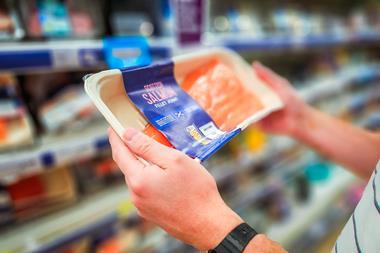Tim Lang Professor of food policy at Thames Valley University
I sat in a café the other day in France with some civil servants. We agreed that the fuel blockade had big lessons for government. We debated whether events had been mishandled by politicians.
As one who has been involved in a few campaigns in my time, I had a sneaking respect for the organisers. A handful of people held up an entire country. When workers went on strike, it used to be called the British disease. This time the fuel demonstrators marked the spread of French tactics throughout Europe. The whole of Europe's political class was wrongfooted as spontaneous' blockades occurred throughout the continent.
The episode has many lessons for the food sector. The first is that in the name of efficiency, an astonishing reliance on fossil fuels has been created. Just-in-time delivery systems have long been known to be shackles for producers, but now retailers are exposed by their own work.
Make no mistake about it. This was a blip in fuel supply, yet within a couple of days a panic culture was in train and retailers were having to issue please buy less' notices.
Behind this is the growth of what we call the food miles phenomenon. People need cars to shop and retailers use the motorways as their warehouses. Everyone travels further. Food that could be grown here is imported. The miracle of modern retailing looks thin.
The government has now hammered out an agreement with the big oil companies after ministers were furious at being two-timed by the oil magnates. It ought to do the following urgently. First, hold an inquiry into the lessons for food security. Second, work out what is essential for nutritional security. Third, factor these findings into a new direction for food and agricultural policy.
Welcome to the new food politics.
{{NEWS }}
Close menu
- Home
- Retail & Wholesale
-
Products & Suppliers
- Back to parent navigation item
- Products & Suppliers
-
Product Categories:
- Back to parent navigation item
- Product Categories:
- Alcoholic drinks
- Bakery
- Cereals & breakfast
- Cheese
- Chicken & poultry
- Chocolate
- Confectionery
- Crisps, nuts & snacks
- Dairy
- Fish
- Fresh produce
- Frozen
- Household
- Meat
- Own Label
- Sauces & condiments
- Seasonal
- Soft drinks
- Vaping
- Vegan & plant-based
- World foods
- Suppliers
- People
- Reports & Data
-
Topics A-Z
- Back to parent navigation item
- Topics A-Z
-
Popular topics:
- Back to parent navigation item
- Popular topics:
- Cost of living crisis
- Crime
- Deposit Return Schemes
- Finance
- Government & Regulation
- Health
- Inflation
- Loyalty
- Marketing
- Mergers & Acquisitions
- New Product Development
- Sourcing
- Supply chain
- Sustainability & environment
- Technology
- Ultra Processed Foods
- Vaping
- A-Z all topics
- Content by type:
- Events
- Ask iA (beta)
- Subscribe now
Sign in to comment on this article
Not logged in before? Register for FREE guest access today.
You will be able to:
- Read more stories
- Receive daily newsletters
- Comment on stories
Advert

















No comments yet